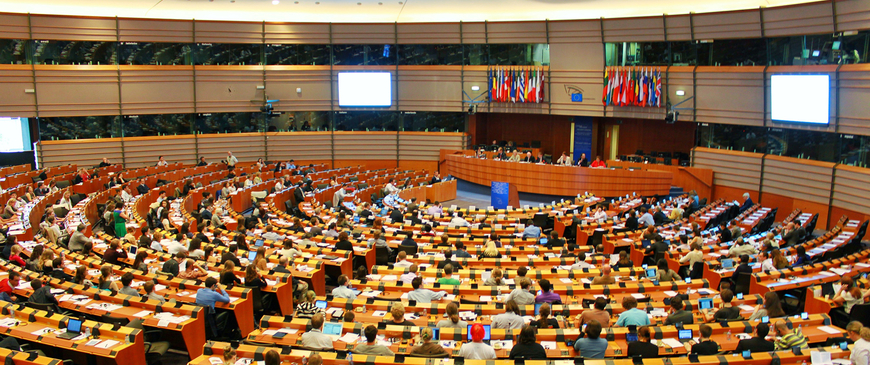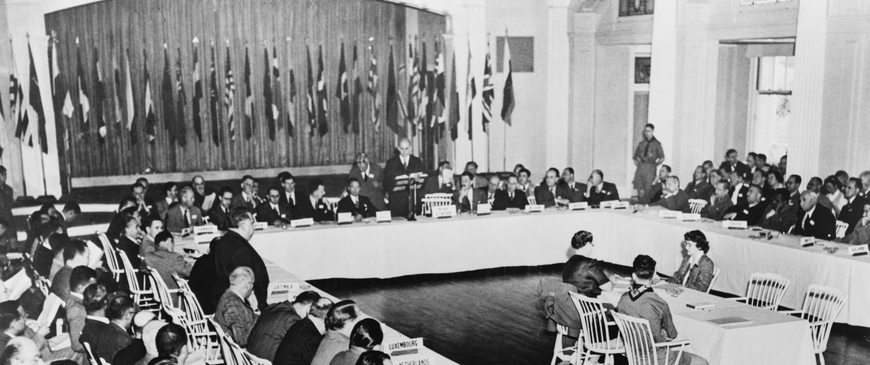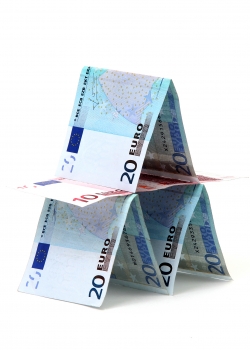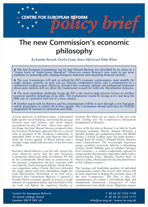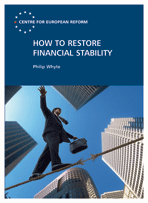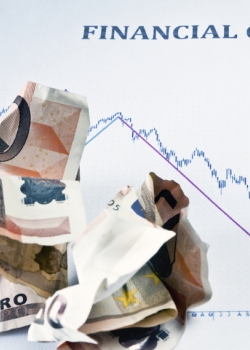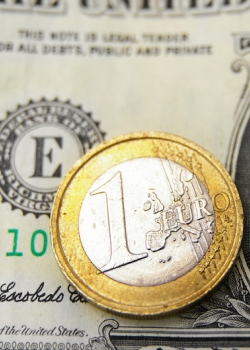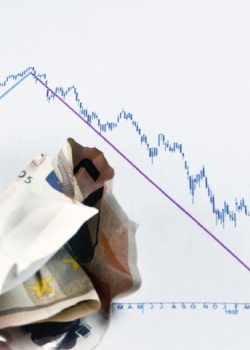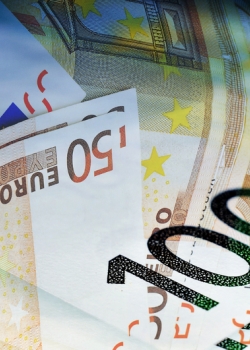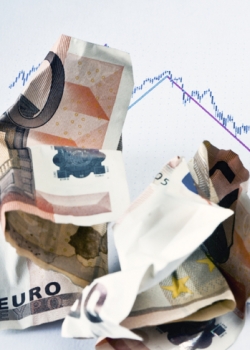Macroeconomics & the euro
Issue 71 - 2010
26 March 2010
- There can be no eurozone stability without economic growth, Simon Tilford
- Should Britain leave EU police and justice policy?, Hugo Brady
- The EU must deliver on its commitment to Pakistan, Clara Marina O'Donnell
Why Christine Lagarde is right about Germany
26 March 2010
Greece’s recent fiscal travails have, slightly unexpectedly, thrown the spotlight on Germany’s current-account surplus. In mid-March, France’s finance minister, Christine Lagarde, urged Germany to do more to boost domestic demand – a call echoed by the European Commission’s president, José Manuel Barroso.
It’s the economics, stupid
26 February 2010
There was always a risk that a one-size-fits-all monetary policy would lead to big divergences in inflation and competitiveness across the eurozone. This, in turn, would result in trade imbalances which would be difficult to reverse.
The new Commission's economic philosophy
08 February 2010
The broad orientation of the Commission's economic policy is unlikely to change. It will continue to defend the single market, free trade and a tough competition policy.
How to restore financial stability
12 January 2010
In 2008, the global financial system came close to collapse. Ever since, policy-makers have been busy overhauling the way it is regulated and supervised. Will this flurry of activity produce a more stable financial system – and if it does, at what cost?
Rocky road back to growth
14 December 2009
There is no doubt that governments had to take exceptional steps in response to the financial crisis. Without such unprecedented action, many economies would have slipped into slump and probably deflation.
Sharing the burden of a weaker dollar
01 December 2009
The eurozone has suffered a deep recession – bigger than the US and about as bad as that in the UK. Public finances across the eurozone have worsened dramatically, and in some cases now look perilous.
Issue 69 - 2009
27 November 2009
- An open letter to David Cameron, Charles Grant
- Sharing the burden of a weaker dollar, Simon Tilford
- Ukraine and the EU: A vicious circle?, Tomas Valasek
What Eastern Europe can learn from the crisis
11 November 2009
It is 20 years since the Berlin Wall crumbled and political and economic freedom started spreading through Eastern Europe. Today, however, the region is mired in deep recession.
Greece: Nowhere to hide
08 October 2009
The Greek economy is on a very dangerous course. Unless the government takes steps to boost productivity and strengthen public finances, Greece faces a bleak future.
Europe's imbalanced response to the financial crisis
01 October 2009
Since last year, politicians and regulators across the G20 have been hard at work trying to place the international financial system on a more stable long-term footing. Many critics believe they are not doing enough.
Issue 68 - 2009
25 September 2009
- Europe leaves behind the era of treaty change, Charles Grant
- Europe's imbalanced response to the financial crisis, Philip Whyte
- Britain must pool defence capabilities, Clara Marina O'Donnell
Talk of 'exit' is premature
22 September 2009
The governor of the Bank of England (BoE), Mervyn King, has had a mixed financial crisis. He assumed that financial stability flowed from monetary stability – which we now know is not the case – and was very slow to recognise the extent of the crisis.
Anglo-Saxons and hedge funds: Culprits or scapegoats?
07 August 2009
Disasters often provoke unseemly bouts of finger-pointing. This has certainly been true of the global financial crisis. In the Anglo-Saxon world, libertarians have blamed it on governments, and governments on ‘bankers’.
The G20 summit – a distraction?
03 April 2009
The good news first. The summit delivered more than expected. The trebling of the funds available to the IMF goes well beyond anything expected and is very welcome.
The Europeans at the London summit
01 April 2009
Christine Lagarde, the French finance minister, threatens to walk out of the London G20 summit unless France gets its way on tougher financial regulation. The toppled Czech Prime Minister, Mirek Topolanek, who happens to hold the EU presidency, describes the US fiscal stimulus as “the road to hell”. Not one EU leader deems it necessary to support Gordon Brown publicly when he tries to drum up support for a more concerted international effort to revive the global economy.
Europe's flagging response to the financial crisis
01 April 2009
Since the 1980s, many of the largest economies in the EU have developed unenviable reputations for protracted economic downturns followed by sluggish recoveries.
In the name of EU solidarity
01 April 2009
Is a new iron curtain threatening to divide the European Union? Hungary’s prime minister, Ferenc Gyurcsany, raised the spectre last month, when he warned that the eastern members were descending into economic mayhem while the richer EU countries were looking on unsympathetically.
Issue 65 - 2009
27 March 2009
- Europe's flagging response to the financial crisis , Philip Whyte
- Carbon price collapse threatens the EU's climate agenda, Simon Tilford
- In the name of EU solidarity, Katinka Barysch
What if the eurozone broke up?
23 March 2009
The future of the euro may not be secure, warned the CER’s Simon Tilford in a January 2009 essay. The current economic crisis threatens to exacerbate the tensions within the eurozone, and an insolvent member-state... could default and leave the eurozone. Since January, the economic crisis has deepened further, and the eurozone’s weakest economies have come under even greater strain.

